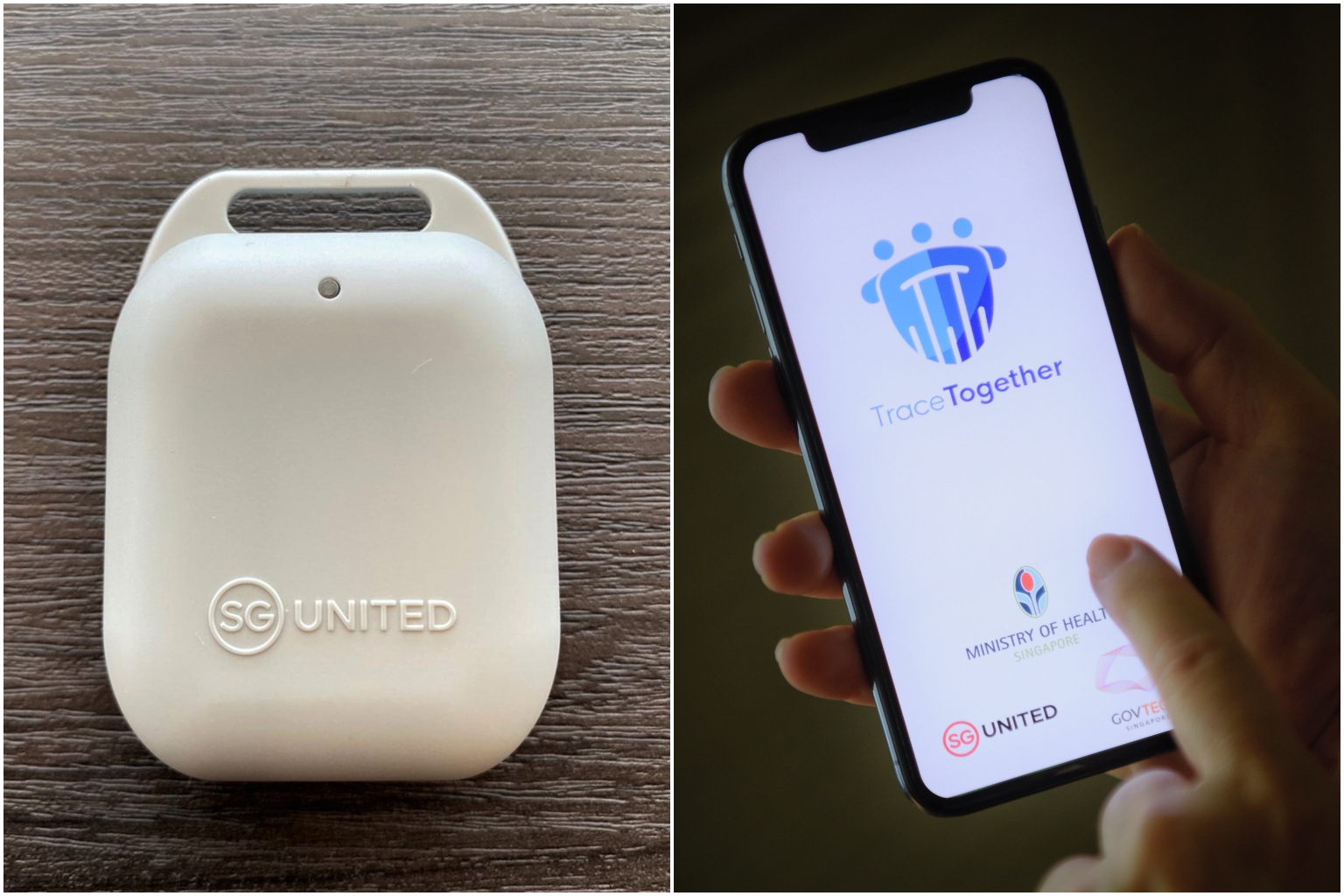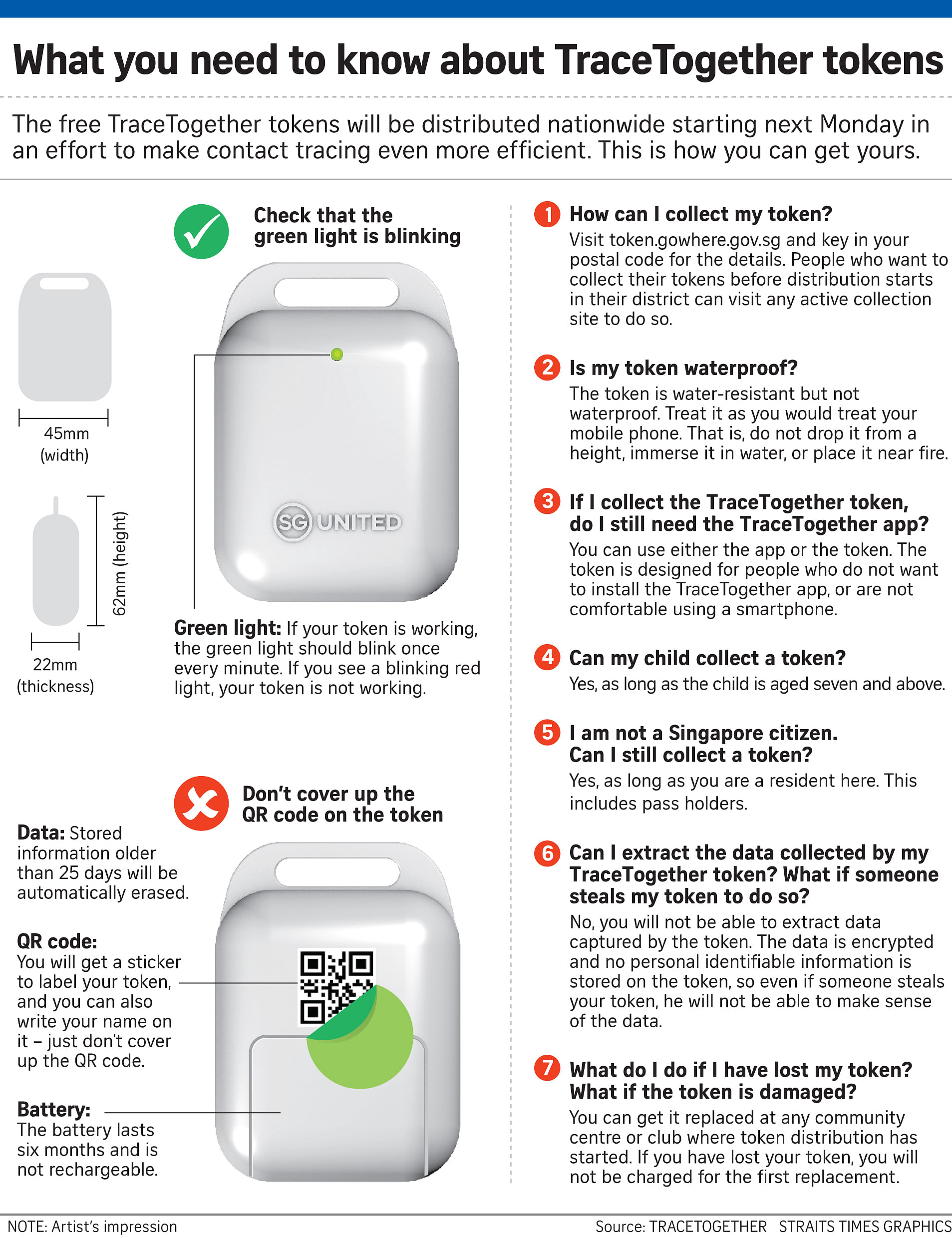Contact tracing to get a boost with distribution of new tokens
Sign up now: Get ST's newsletters delivered to your inbox

Distribution of the TraceTogether tokens will start at 20 community centres and clubs in Jalan Besar and Tanjong Pagar from Sept 14, 2020.
PHOTOS: SMART NATION AND DIGITAL GOVERNMENT GROUP, ST FILE
Follow topic:
From Monday, the contact tracing process will get a speed boost, with the start of the nationwide distribution of the Singapore-made TraceTogether tokens.
These free tokens are more user-friendly for those unfamiliar with smartphones, and will also help overcome several limitations of the app, said experts in technology and public health.
For one thing, the token is independent of any mobile platform, noted Mr K.K. Lim, head of cyber security, privacy and data protection at Harry Elias Partnership.
Now, users of certain mobile phones - such as iPhones running on older versions of Apple's operating system or Huawei phones without access to Google's Play Store - cannot run the app.
Another plus point is that the token is useful for seniors who cannot afford a smartphone or don't know how to use one, as well as children who may not own such a phone.
The tokens help these groups to come on board the TraceTogether programme, Mr Lim said.
The programme enables the authorities to identify a person's close contacts, if needed.
Its success hinges on how widely it is used, said Professor Teo Yik Ying, dean of the National University of Singapore's Saw Swee Hock School of Public Health.
If only 20 per cent of Singapore's population is on board, it will be just 4 per cent effective. In other words, contact tracers using the programme can expect to pick up only four of a Covid-19 patient's 100 contacts, Prof Teo added.
At present, the TraceTogether app has seen about 2.4 million downloads, accounting for around 40 per cent of Singapore's population.
But this is not enough as its effectiveness requires more people to be interacting, said Minister-in-charge of the Smart Nation Initiative Vivian Balakrishnan, who is also the Foreign Minister.
The tokens will be given to any resident who needs one, the Government said earlier this week.
They will be handed out from Monday at 20 community centres and clubs in Jalan Besar and Tanjong Pagar, areas where the proportion of elderly residents is higher.
Estates such as Ang Mo Kio, Aljunied, East Coast, Marine Parade and Sengkang are likely to get their tokens between this month and next month, while residents in areas such as Clementi, West Coast, Sembawang and Pasir Ris can expect to get theirs between next month and November.

People can also go to any active distribution point to get their tokens ahead of schedule. The collection venues and timings are listed on the TokenGoWhere website. Distribution is expected to be completed by end-November.
"We have staggered the distribution of the TraceTogether tokens to ensure there is sufficient supply as we move into more community centres/clubs, and will produce the numbers according to demand," said a spokesman for the Smart Nation and Digital Government Group.
Each token is registered in the user's name, enabling contact tracers to identify people who have been in close proximity to a confirmed Covid-19 case.
But the user's name, identification number and cellphone number are not captured in the token. They are stored in a separate computer system.
When entering a venue, TraceTogether app users scan the venue's QR code on their mobile phones.
Token users, however, will have to get the venue staff to scan the QR code on their tokens.
Neither the app nor the token captures data on the user's geographical whereabouts. Instead, they work by exchanging short-distance Bluetooth signals with other apps or tokens nearby. This proximity data is encrypted and stored for 25 days before being automatically deleted.
But for the tokens to succeed, people have to use them, said experts interviewed. "Just like wearing a mask, you've got to form the habit of carrying the token when you go out," Mr Lim said.

